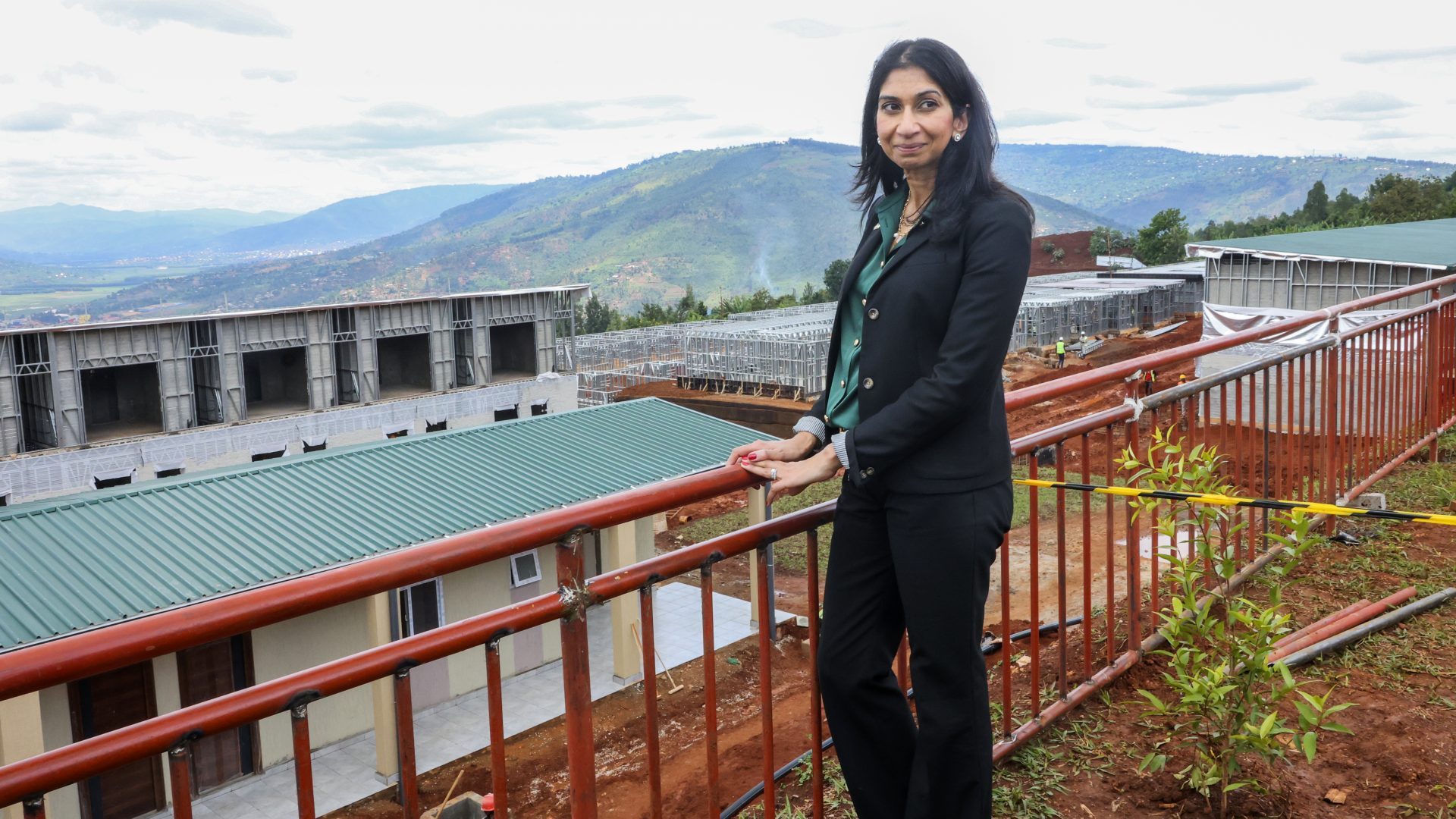The Court of Appeal has today ruled that Suella Braverman’s plan to deport asylum seekers to Rwanda is unlawful. In his summary, the presiding judge said:
“The deficiencies in the asylum system in Rwanda are such that there are substantial grounds for believing that there is a real risk persons sent to Rwanda will be sent to their home countries where they face persecution or other inhumane treatment. In that sense, Rwanda is not a safe third country.”
“Sending anyone to Rwanda would constitute a breach of article three of the European Convention on Human Rights, which Parliament has required the government to comply with.”
So there it is. Rwanda was never a safe destination, and sending people there would break international law.
There was always something odd about the Rwanda plan. On the one hand, sending migrants to Rwanda was meant to be such a nasty prospect that it would put migrants off coming to Britain in the first place. As Braverman said, it would “act as a powerful deterrent against dangerous and illegal journeys such as small boat crossing”.
But on the other hand, Rwanda was put forward by the government as a forward-thinking, vibrant and entirely safe nation, that was, in Braverman’s words “safe for refugees”. Rwanda needs more workers, and migrants who are deported there would get a decent welcome. According to Braverman, they would have access to everything from “long-term accommodation sites to vocational training and education centres”.
But it couldn’t be both a deterrent and the promised land all at the same time. Except, of course, to Braverman, who seemed weirdly fixated on the idea, notoriously telling a crowd at the Tory party conference: “I would love to have a front page of the Telegraph with a plane taking off to Rwanda, that’s my dream, it’s my obsession”.
Perhaps the biggest practical problem with Braverman’s “obsession” was how little attention she paid to the cost of actually carrying it out. The government gave Rwanda £120 million up front in “development funding”, and a parliamentary report at the time said that Britain “will also pay for the processing and integration costs for each relocated person”. It calculated those costs to be around £12,000 per person.
A recent Home Office assessment found that figure was wrong by more than a factor of ten – the real cost per person was £169,000, the equivalent of buying each of them a decent-sized flat in Weston-Super-Mare. It was an amount so absurdly high that it raised the question of how the figure of £12,000 had ever been derived.
The lack of attention to basic details suggests this policy was promoted even though the government knew it would never happen. It wasn’t properly costed, its fundamental contradictions were never addressed and the fact it might be illegal was never considered, a remarkable oversight considering its chief proponent – Suella Braverman – is a former lawyer.
The Rwanda plan represents the very worst of the Cakeist era. It was an idea that captures and distils into policy form the pure spirit of the new-Tory Culture War. It was a gesture, a signal, a way of winding up the “lefty lawyers”, nothing more than a wedge issue, designed to manufacture a garish point of political difference, to be exploited by people who insisted we must “stop the boats”.
The superficiality of the Rwanda plan is all the more galling when set alongside the problem it pretends to address. The plan had nothing to say about why so many millions of refugees and immigrants are currently on the move. It didn’t look at the origins of those migrants, or consider how Britain might help to ensure that they don’t have reason to move in the first place.
But then that is a hard problem, one that requires long-term thinking and a view of Britain that extends beyond questions of short- and medium-term political gain. The Cakeist, however, cannot think in those terms because, by definition, the aim is to grab everything available now, and stuff it down as quickly as possible. A defining feature of Cakeism is that other people are irrelevant, and if they are foreign then they are especially irrelevant.
The same is true of the Culture Warrior. It’s much easier to attack the National Trust, or civil servants, or the latest student intellectual fad than it is to get to grips with the origins of current migration patterns, or the punishing cost of food and rent, or the gross underfunding of schools, or the striking nurses, or collapsing water infrastructure.
Today’s judgement by the Appeal Court is a reminder that the ideologue’s most dangerous opponent is reality itself. The Rwanda plan came up against the outside world as it really is, not as the Culture Warriors imagine it, and the whole thing fell apart.
And that is perhaps the main point about a Culture War. When it’s over, there’s nothing left, no substance, no legacy, nothing at all – apart from the shame of knowing it was there in the first place.











